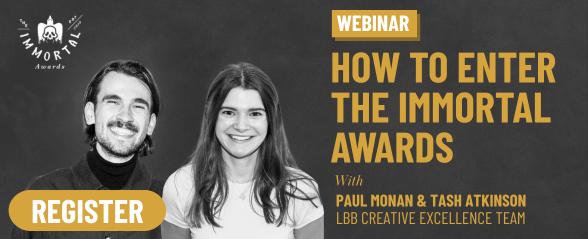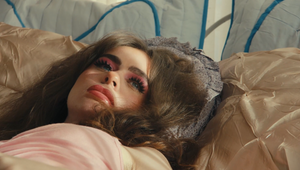
Juliane Ellrich’s on What She’s Looking To See on Eurobest’s ‘Film Craft’ Jury

With a love of humorous films and plenty of experience working at Zauberberg Productions as partner and executive producer, Juliane Ellrich – otherwise known as Elli – was the perfect choice to be president of the ‘Film Craft’ jury at Eurobest this year.
Passionate about stories which evoke emotion, and the combination of quality and creativity, it’s groundbreaking work that she’s hoping to see more of this year. Having worked on brands such as Genesis, Ford, Smart, Samsung, O2 and VW – at Bigfish Filmproduktion and Markenfilm Hamburg, as well Zauberberg – Juliane has won numerous awards across Cannes Lions, D&AD, LIA, OneShow and, of course, Eurobest Grand Prix. So it’s safe to say she knows what makes for award-winning work.
Sharing what she believes “on-screen artistry” and exceptional craft look like in the ‘Film Craft’ category, Juliane sits down with LBB’s Nisna Mahtani.
LBB> The first time you watch a piece of work, what do you look out for to exemplify exceptional craft?
Juliane> A good story - if it catches me, then I’ll want to watch it again and discover new details. For crafts like cinematography or edit, I feel like less is more sometimes. Fancy camera moves or quick cuts don’t always elaborate a film.
LBB> The Film Craft category is explained as awarding “on-screen artistry”. For those who perhaps aren’t in the industry, can you delve a little deeper into what this means?
Juliane> Making a film or a commercial is crafting a beautiful piece of creative work. A very basic comparison would be similar to a woodworker. The more thought through, the more you can dive into detail and the better it gets. The craft can make a mediocre idea into something fantastic whereas a bad craft will always be recognised as only that even though the idea might be great.
LBB> How are you preparing for this year’s jury room?
Juliane> I love keeping up to date with watching the latest work. I think it’s essential if you want to be part of the creative industry. But there really is no dedicated preparation, it all comes down to the people you're in the room with. Last year was an incredible experience and I’m really grateful to also be part of this year's jury.
LBB> What are some of the big debates or topics of conversion surrounding Film Craft this year? How do you think these will play a part in discussions?
Juliane> I think the biggest debate surrounds AI and the use thereof. Especially when you’re talking about craft that is part of a bigger creative.
How do you judge AI against the work of a person who has created their style with years of experience? Whereas AI ‘just’ uses that exact experience, of not just one person but of thousands. Especially for categories like script, I feel it’s hard to judge if it should even be allowed to be part of the process. It will definitely make for very interesting discussions throughout every jury.
LBB> Between the production and post production efforts that go into a piece of work, how do teams ensure that they elevate ideas or dramatically enhance execution during the process?
Juliane> I think that does highly depend on the project you're working on. I feel like a big part of either production or post-production is figuring out early what is possible with an idea and not trying to make it into something it was never supposed to be. Dramatic enhancement looks different for every script you get. I think the technical side of things should always support the story you’re trying to tell whether that’s huge VFX or a very subtle edit, really doesn’t matter as long as it benefits the story. Sometimes a very simple idea with a straight-forward execution can be much better than trying to enhance it drastically which ultimately then is an enhancement. Haha, a vicious cycle.
LBB> With your experience on the production side of things, what are some of the key things to consider while creating a piece of work?
Juliane> To never promise too much and to choose your battles wisely.
LBB> As a judge, how important is it to consider context when assessing a campaign?
Juliane> I think it’s always part of the creative. As a jury, we have to put films into context whether it’s craft, creative or budgetary. Providing more context can justify why a film is in the dedicated jury. Films may look very simple but ultimately are very elaborate in their VFX, shoot or camera techniques or the way they were marketed.
LBB> How will you keep your jury aligned and on track for choosing Grand Prix winners? Are there any techniques, is it more of an organic process or something else entirely?
Juliane> To me that highly depends on the jurors. Every group has their own dynamic and it always is an organic process if you work with people. The reason the people in the jury were chosen is to give everyone their space to express their concerns and comments. It’s somewhat the only way to ensure getting the best outcome.
LBB> What are you most looking forward to during this year’s judging process?
Juliane> Seeing a lot of new, groundbreaking work that we haven’t seen before, hopefully seeing a lot of young talent and meeting new people from across the European industry.















